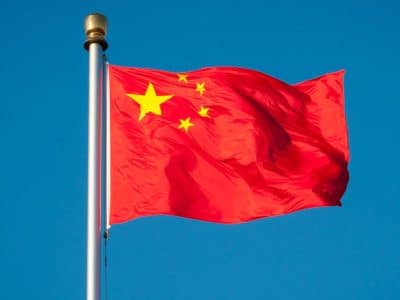The Middle East will continue attracting significant business interests from British companies over the coming year, a new report from deal advisory Lumina revealed following its analysis of cross-border mergers, acquisitions and investments between the UK and Gulf Cooperation Council (GCC) states through 2023.
While global deal-making activity softened in the past year due to economic headwinds, the analysis finds that the UK-GCC corridor proved relatively resilient.
Though early-stage venture capital transactions tailed off, larger strategic deals and joint ventures rose in prominence according to the ‘Lumina Cross-Border Insights 2024‘ report.
Cross-border transaction volumes held up well compared to declines seen elsewhere internationally.
Key GCC sectors like energy and tech saw British involvement increase
Key sectors where British firms expanded their GCC involvement included energy, transport, technology, consumer goods and industrials.
Industries driving the fastest revenue growth among major UK-listed companies operating in the region contained transport equipment maker Rolls-Royce, luxury brand Burberry and infrastructure providers.
Total revenues earned by FTSE-listed British firms across Gulf markets hit a new record high of over £13.8 billion in 2022.

However, oil and gas generated less income year-on-year as regional energy transition policies take effect. The GCC now represents over 20 people of worldwide turnover for these listed British companies, underlining its financial importance.
Private equity and credit are anticipated to become important sources of growth funding for Gulf and British firms engaged in mergers and acquisitions across borders.
According to the report, institutional investors are raising substantial new funds to capitalise on attractive opportunities arising as venture capital activity plateaus. Continued participation by GCC sovereign wealth funds in major deals is also predicted to feature prominently.
Inward and outward foreign direct investment involving the UK and GCC broke fresh records in 2022, led by Saudi Arabia and the UAE.
Saudi’s FDI outflows overtook the UAE’s for the first time. Major inward investments included the Saudi Public Investment Fund acquiring minority stakes in prestigious British luxury hotel group Rocco Forte and Heathrow Airport.

Special economic zones and regulatory reforms are expected to make Gulf Cooperation Council countries even more appealing destinations for overseas capital.
The report highlights transformational initiatives in sectors like renewable energy, advanced manufacturing and digital infrastructure cementing the region’s emerging status as a global innovation centre.
Dubai, Saudi Arabia megaprojects to drive Foreign Direct Investment, Investments in 2024
Looking ahead to 2024, Lumina anticipates further increases in cross-industry mergers and acquisitions between British and GCC businesses.
Analysts point to expanding opportunities presented by megaprojects, especially those supporting sustainable energy goals as well as regional manufacturing hubs.
New funding channels like private equity are also tipped to play an augmented role as sources of growth funding for regional and British firms collaborating across borders.
The analysis also revealed that despite recession risks, the Gulf will carry on standing out internationally as a priority location where British corporations can generate substantial returns through trade and investment cooperation.

Upcoming projects open prospects spanning multiple vital sectors to reinforce the region’s attraction as a marketplace for international enterprise.
Successful execution of ambitious developmental ambitions can be expected to sustain bilateral commercial flows.
Going forward into 2024 and beyond, Lumina predicts the GCC will keep providing impetus for cross-border UK corporate activity as regional economies transition, digitalisation drives change and global innovations take shape in the energy, infrastructure and industry spheres.
Britain too should maintain avenues for Gulf capital inflows given the two sides’ deepening commercial interdependence and shared interest in tackling emerging challenges through collaboration.








